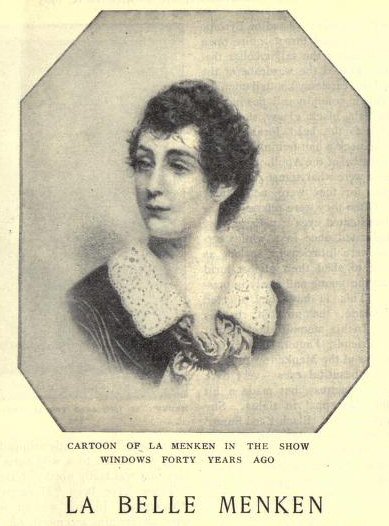Last week I quoted the views of Colonel Sibthorp, M.P. for Lincoln, on the Great Exhibition of 1851. And lo!, now I have come across him again, for Colonel Charles de Laet Waldo Sibthorp has a chapter entire to himself in the late John Michell’s splendid book Eccentric Lives And Peculiar Notions (1984).
“During his many years in the House of Commons, Colonel Sibthorp made his name as the most conservative Member of Parliament ever known, setting a standard of reaction, nationalism and xenophobia unrivalled in parliamentary history. He opposed every change and innovation, regarding even the mildest reform as a fundamental attack on his idol, the English Constitution of his youth.”
Prior to his election, asked if he would support reform, he replied:
“On no account would I sanction any attempts to subvert that glorious fabric, our matchless Constitution, which has reached its present perfection by the experience of ages, by any new-fangled schemes which interested or deluded individuals might bring forward, and those who expect any advantages from such notions will find their visions go like a vapour and vanish into nothing.”
“As his indignation flourished,” says Michell, “so did his powers of oratory. His emphatic speeches against anything new or foreign delighted the House of Commons and made him their popular favourite. The things he disapproved of were always ‘Humbugs’ , and his repetitions of this and other familiar terms of abuse were greeted with roars of parliamentary laughter. His dress was as old-fashioned as his opinions, usually consisting of a bottle-green frock-coat and wide white trousers hoisted high above his top-boots in the Regency manner. His wispy beard, tall white hat and antique quizzing glasses on a cord distinguished him from all other Members…
“Colonel Sibthorp was obviously very loyal to the Monarchy, but in his eyes Queen Victoria had committed one terrible blunder: she had married a foreigner. He always referred to such people as ‘hypocritical foreigners’, implying that they were not merely unfortunate but in some way sinister through having been born outside Britain. Prince Albert, he allowed, had some admirable qualities, but his character was permanently impaired by the fact of his foreign birth…
“The coming of the railways provided Colonel Sibthorp with the subject which grew obsessive during his later years. Beginning with the announcement that he had no intention of ever riding in the ‘steam humbug;, he opposed all railway bills in principle and detail. The new ‘degrading form of transport’, he foresaw, would bring all sorts of disasters to its patrons, from moral ruin to wholesale slaughter. He kept an eye on the newspapers for reports of railway accidents, and accused the steam companies of playing down the gory details of crashes…
“Christopher Sykes, who has written affectionately about Sibthorp, says that Dostoievski used to read English parliamentary reports, and took Colonel Sibthorp as his model for Lebedev, the character in The Idiot who proclaimed that the network of railways spreading across holy Russia was the baleful ‘star called Wormwood’ prophesied in the Book of Revelation.”

